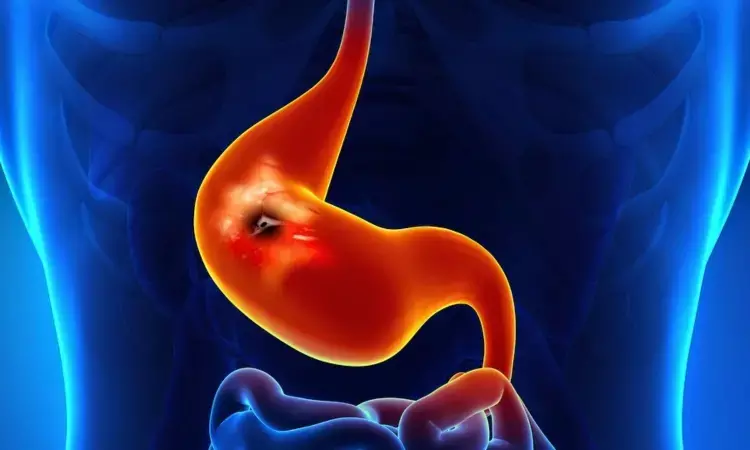- Home
- Medical news & Guidelines
- Anesthesiology
- Cardiology and CTVS
- Critical Care
- Dentistry
- Dermatology
- Diabetes and Endocrinology
- ENT
- Gastroenterology
- Medicine
- Nephrology
- Neurology
- Obstretics-Gynaecology
- Oncology
- Ophthalmology
- Orthopaedics
- Pediatrics-Neonatology
- Psychiatry
- Pulmonology
- Radiology
- Surgery
- Urology
- Laboratory Medicine
- Diet
- Nursing
- Paramedical
- Physiotherapy
- Health news
- Fact Check
- Bone Health Fact Check
- Brain Health Fact Check
- Cancer Related Fact Check
- Child Care Fact Check
- Dental and oral health fact check
- Diabetes and metabolic health fact check
- Diet and Nutrition Fact Check
- Eye and ENT Care Fact Check
- Fitness fact check
- Gut health fact check
- Heart health fact check
- Kidney health fact check
- Medical education fact check
- Men's health fact check
- Respiratory fact check
- Skin and hair care fact check
- Vaccine and Immunization fact check
- Women's health fact check
- AYUSH
- State News
- Andaman and Nicobar Islands
- Andhra Pradesh
- Arunachal Pradesh
- Assam
- Bihar
- Chandigarh
- Chattisgarh
- Dadra and Nagar Haveli
- Daman and Diu
- Delhi
- Goa
- Gujarat
- Haryana
- Himachal Pradesh
- Jammu & Kashmir
- Jharkhand
- Karnataka
- Kerala
- Ladakh
- Lakshadweep
- Madhya Pradesh
- Maharashtra
- Manipur
- Meghalaya
- Mizoram
- Nagaland
- Odisha
- Puducherry
- Punjab
- Rajasthan
- Sikkim
- Tamil Nadu
- Telangana
- Tripura
- Uttar Pradesh
- Uttrakhand
- West Bengal
- Medical Education
- Industry
Pantoprazole lowers risk of upper GI bleeding among patients on invasive ventilation: NEJM

Proton pump inhibitors (PPIs) are widely prescribed worldwide due to their effectiveness in treating acid-related gastrointestinal disorders like gastroesophageal reflux disease and peptic ulcers. PPIs have since been linked to significant complications, including acute kidney injury, chronic kidney disease, Clostridium difficile infection, hypomagnesemia and fractures.
Stress ulcers often begin forming within hours of a severe illness or major trauma. The primary cause of stress ulcers is believed to be insufficient mucosal protection in critically ill patients. The medications like PPIs and histamine 2 receptor antagonists are commonly given as a preventive measure to reduce the risk of stress ulcer formation. However, recent research evaluated whether PPIs are beneficial or harmful for preventing stress ulcers in critically ill patients on invasive ventilation.
In this randomized trial, critically ill adults on invasive ventilation were assigned to receive either intravenous pantoprazole (40 mg daily) or a placebo. The main efficacy measure was the incidence of clinically significant upper gastrointestinal bleeding in the ICU within 90 days and the main safety measure was all-cause mortality within 90 days. The secondary outcomes included ventilator-associated pneumonia, Clostridioides difficile infection, and significant patient bleeding.
The key findings from the study were:
A total of 4,821 patients were randomized across 68 ICUs. Clinically significant upper gastrointestinal bleeding occurred in 25 of 2,385 patients (1.0%) receiving pantoprazole and in 84 of 2,377 patients (3.5%) receiving placebo.
At 90 days, mortality was reported in 696 of 2,390 patients (29.1%) in the pantoprazole group and in 734 of 2,379 patients (30.9%) in the placebo group. Pantoprazole reduced significant patient bleeding, while all other secondary outcomes were similar between the groups.
In the patients who were undergoing invasive ventilation, pantoprazole significantly reduced the risk of clinically significant upper gastrointestinal bleeding when compared to placebo, with no significant impact on mortality. The use of PPIs for preventing stress ulcers should be restricted to high-risk patients in the intensive care unit. The patients treated with PPIs for gastrointestinal bleeding during their hospital stay do not need to be sent home on high-dose (twice daily) PPIs. Also, there is widespread overuse of PPIs during hospitalizations, often resulting in the unnecessary continuation of these medications after discharge. Given that long-term use of PPIs is frequently inappropriate and can lead to significant adverse effects, it is critical to limit their use to cases with clear and appropriate indications.
Reference:
Cook, D., Deane, A., Lauzier, F., Zytaruk, N., Guyatt, G., Saunders, L., Hardie, M., Heels-Ansdell, D., Alhazzani, W., Marshall, J., Muscedere, J., Myburgh, J., English, S., Arabi, Y. M., Ostermann, M., Knowles, S., Hammond, N., Byrne, K. M., Chapman, M., … Finfer, S. (2024). Stress Ulcer Prophylaxis during Invasive Mechanical Ventilation. In New England Journal of Medicine. Massachusetts Medical Society. https://doi.org/10.1056/nejmoa2404245
Neuroscience Masters graduate
Jacinthlyn Sylvia, a Neuroscience Master's graduate from Chennai has worked extensively in deciphering the neurobiology of cognition and motor control in aging. She also has spread-out exposure to Neurosurgery from her Bachelor’s. She is currently involved in active Neuro-Oncology research. She is an upcoming neuroscientist with a fiery passion for writing. Her news cover at Medical Dialogues feature recent discoveries and updates from the healthcare and biomedical research fields. She can be reached at editorial@medicaldialogues.in
Dr Kamal Kant Kohli-MBBS, DTCD- a chest specialist with more than 30 years of practice and a flair for writing clinical articles, Dr Kamal Kant Kohli joined Medical Dialogues as a Chief Editor of Medical News. Besides writing articles, as an editor, he proofreads and verifies all the medical content published on Medical Dialogues including those coming from journals, studies,medical conferences,guidelines etc. Email: drkohli@medicaldialogues.in. Contact no. 011-43720751


